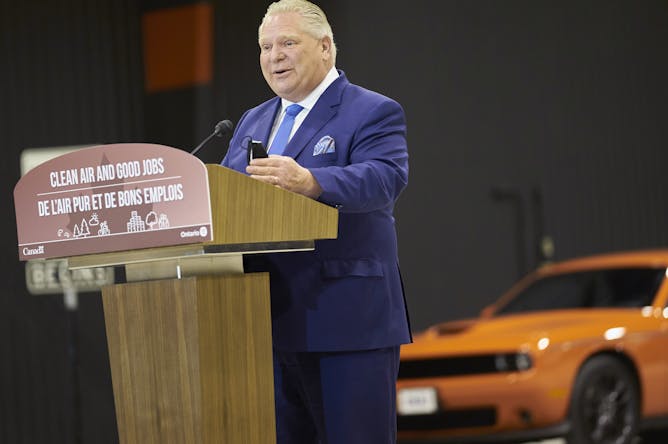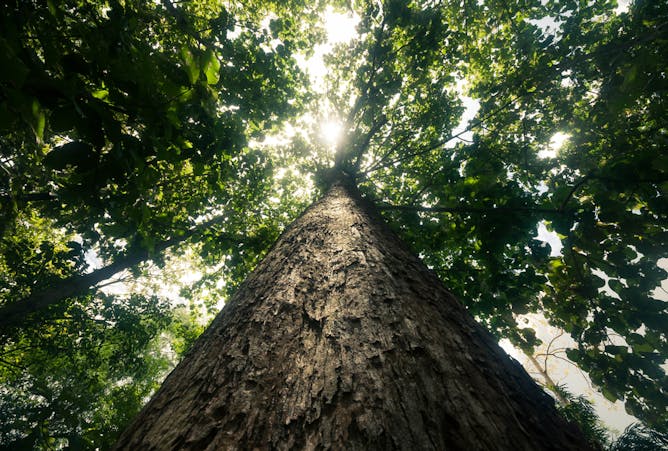|
Health workers get a front-row view of the effects of health policies, so it’s no surprise they have strong attitudes about them. Like many other groups, health workers often use public protest to express their ideas and influence policy. At a time when fatigue, burnout and frustration are driving many workers out of health care, it’s becoming more and more important to understand what’s driving this exodus in order to avoid a workforce crisis in health care.
Today in The Conversation Canada, Veena Sriram of the University of British Columbia and Sorcha Brophy of Columbia University take a closer look at health worker protests around the globe. The first thing they found was a big uptick in protest action among health workers during the first year of the pandemic. They also note what’s driving this unrest. It turns out it’s not new issues: many of the things bringing health workers into the streets — and potentially pushing them out of health care altogether — are pre-existing issues brought into sharp focus by the
pandemic.
Also today:
|

|
Patricia Nicholson
Health + Medicine Editor
|
|

Health-care workers protest over stalled contract negotiations with the provincial government in Montréal in October 2020.
THE CANADIAN PRESS/Paul Chiasson
Veena Sriram, University of British Columbia; Sorcha A. Brophy, Columbia University
To prevent a shortage of health workers, public expressions of appreciation needs to be backed by policies that provide dignity, decent working conditions, accountability and appropriate remuneration.
|

Elon Musk has over 80 million Twitter followers, so why does he need to own the platform?
(AP Photo/Eric Risberg)
Hervé Saint-Louis, Université du Québec à Chicoutimi (UQAC)
Elon Musk’s purchase of Twitter may be an indicator of the billionaire’s plans to further disrupt industries.
|

Social media posts by Vietnamese influencers are spreading dangerous falsehoods about Ukrainians and lauding Vladimir Putin.
(Piqsels)
Quoc Tan Trung Nguyen, University of Victoria
Online campaigns in Vietnam are falsely maligning Ukrainians and discrediting the legitimacy of international organizations. It’s all at odds with the aims of the Vietnamese government.
|

Since he was elected in 2018, Doug Ford and the Progressive Conservatives have made big changes to the province’s environmental policy, which some say are are harmful to endangered species and aren’t aligned with the fight against climate change.
THE CANADIAN PRESS/ Geoff Robins
Mark Winfield, York University, Canada
The 2022 election looms as the most important for Ontario’s environment in modern era, and its impact may echo for generations to come.
|

While licensed retailers are subject to inspections and constrained to selling products sourced through licensed channels, the unlicensed market seems to operate outside these requirements, with little pressure from law enforcement.
(Shutterstock)
Majid Eghbali Zarch, Memorial University of Newfoundland; Jennifer Marlowe, Memorial University of Newfoundland; Sandy Brennan, Memorial University of Newfoundland
Policy-makers and stakeholders in Canada should re-examine CBD policies and ensure they are protecting, rather than confusing, consumers.
|

Women trace ancestral memories using wool.
(Monica Malo)
Cristina Delgado Vintimilla, York University, Canada; Veronica Pacini-Ketchabaw, Western University
Women meet to weave, reflect, commiserate, share culture and tell stories in hopes of passing down ancestral knowledge.
|
La Conversation Canada
|

Sans pour autant compromettre la diversité des essences d’arbres que nous devrions voir dans les paysages urbains, la plantation et la protection d'essences de grande taille devraient être fortement encouragées.
(Shutterstock)
Alison Munson, Université Laval; Anaïs Paré, Université Laval
On remarque de plus en plus un engouement pour la plantation de petits arbres en milieu urbain. Or, les arbres de grande taille présentent des avantages non négligeables que nous devrions considérer.
|
Arts
|
-
Gabriele Neher, University of Nottingham
He may have been sidelined thanks to the Pre-Raphaelites, but Raphael’s talent and output were prodigious, ensuring his lasting appeal.
|
|
Environment + Energy
|
-
Laura Phillips, Monash University; Rachel Leihy, Arthur Rylah Institute for Environmental Research
We compiled the first list of Antarctic species and where they were first found. This knowledge means we can now protect all of the icy continent’s species.
|
|
Politics
|
-
Matt Williams, The Conversation
A draft opinion written by Justice Samuel Alito suggests that a majority of the court may overturn the landmark 1973 ruling that guaranteed the constitutional right to abortion in the US.
|
|
|
|
| |
| |
| |
| |

|
| |
| |
| |
| |
| |
| |
|
|